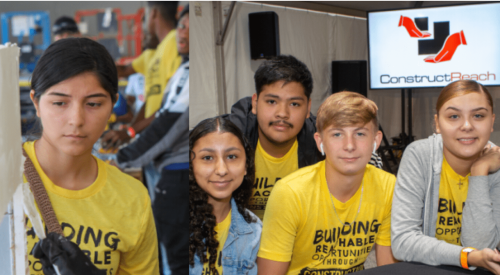The world is changing rapidly and to attract and retain emerging top talent in the building industry, a wise company will pay attention and adjust accordingly. From what I’ve observed and researched over the course of my career in non-profit work, one key strategy in developing an attractive work environment is partnering with responsible charitable organizations. Let’s examine what has changed, why creating a culture of meaningful work and thoughtful generosity is so important, and how shifting can make a positive impact on your company.
The Internet
The Millennials and Gen Zers currently entering the workforce have never known life without the internet. They have grown up, been educated, and engaged socially with unprecedented access to information from around the world. They have a global awareness unthinkable to prior generations.
Social Media
After internet access came social media. It is crucial to recognize the role social media platforms have played in this generation’s development. In recent years, sociologists have noted a shift in the West from a “guilt – innocence” mindset to a more typically Eastern “shame – honor” mindset, and they point to the advent of social media platforms as a significant cause for this shift.
Guilt-innocence focuses on law and punishment. A person may ask, “is my behavior fair or unfair?” The focus in a shame society is the inculcation of shame and the complementary threat of ostracism., so a person may ask, “Shall I be ashamed if I do X?” or “How will people look at me if I do Y?”
Shame cultures are typically based on pride and honor, and appearances are what count.” It is fairly plain to see the role social media plays in this shift as evidenced by the rise of influencers, tribalism, and the cancel culture in our society.
Charitable Giving
Admittedly, the influence of internet access and social media platforms have produced a mixed bag of results, however research shows that in charitable giving, the results have been overwhelmingly positive. Because of immediate access to information, givers of this generation are much more informed as to where their money is going and what it is accomplishing. They give out of a desire to achieve the greatest impact, not out of obligation. For charitable organizations this has led to greater accountability, transparency, and more accurate reports on their work. Furthermore, Millennials and Gen Zers aren’t giving at the same level as their predecessors (they don’t make as much money…yet), however a higher percentage of them are giving and they do so more often.
Conclusion
How does all of this apply to attracting and retaining top talent at your company? Millennials will represent the largest demographic in the American workforce in 2020. It is crucial to know what matters to them. Grant Skeldon, founder of a millennial missionary network called Initiative Network, observes “Millennials aren’t drawn to causes. They’re drawn to cause communities.” A volunteer at an aid packing event I recently hosted told me, “I was so excited to come here because I wanted to serve, but I didn’t want to serve alone.” This generation’s worker wants to be a part of something bigger than themselves. Giving your people the opportunity to do something significant together through aligning with a responsible charitable organization affirms your company’s generosity. Try encouraging your younger employees to lead you in researching and choosing what organizations to partner with. By providing your employees the opportunity to engage in transcendent, meaningful work through strategic non-profit partnerships, you will create a dynamic and attractive workplace that people will long to be a part of.













